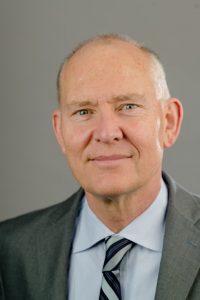Falsified and Substandard (FS) medicines remain a largely hidden problem in many lower-and-middle income countries. Adding to law reform, a comprehensive response should include strengthening of capacity, accountability, collaboration and coordination of all concerned parties
By David Patterson*
Principal Consultant, Health, Law and Development Consultants (HLDC), The Hague, Netherlands
Falsified and Substandard Medicines: Threat to the SDGs – but Who’s Watching, Caring or Acting?
The heartfelt cry for action on falsified (‘counterfeit’) and substandard (FS) medicines in Uganda by Denis Bukenya and Michael Ssemakula on PEAH – Policies for Equitable Access to Health in August and September 2018 must not be ignored.
FS medicines remain a largely hidden problem in many lower-and-middle income countries – legitimate manufacturers are afraid of a loss of confidence in their brands – and hence loss of revenue, governments fear censure if the scale of the problem becomes widely known, and there has been deliberate obfuscation between deadly FS medicines and quality generic drugs that can save lives. International development agencies have generally focused on technical solutions without addressing the transnational criminal aspects.
In 2015, with funding from the World Bank, I led a multi-agency team for the International Development Law Organization (IDLO) on a scoping mission to Kampala to review options to strengthen the legal environment for the elimination of FS medicines. Our report was published in February 2016 on the websites of IDLO and of the World Bank’s Global Forum on Law, Justice and Development.
Our recommendations focused less on law reform and more on strengthening the capacity of the different actors, including civil society. Uganda has a relatively vibrant civil society sector. Many NGOs focus on health, and several have addressed issues related to FS medicines. However, the civil society response to the issue of FS medicines is complex. It was reported that in some districts local populations may wish to protect unlicensed vendors from inspectors by informing the vendors of upcoming inspections. This occurs because the local population is afraid that the unlicensed vendors will be closed and drugs will be less accessible. They do not adequately understand the dangers of FS medicines.
We therefore identified civil society capacity as central to strengthening government resolve to act. This would mean supporting health rights organizations such as the Centre for Health, Human Rights and Development (CEHURD) as well as the Community Health and Information Network and the Coalition for Health Promotion and Social Development.
We also heard that regulators and prosecutors needed training to prosecute for crimes relating to FS medicines, and that magistrates and judges may need training to ensure that the full gravity of the offences are understood, and appropriate penalties imposed.
We approached multiple funders for support to implement the recommendations of the scoping mission, but failed to elicit any interest. The justice sector funders told us to approach the health sector donors, and vice versa. Development sector funding to build public health law capacity typically falls in the crack between the silos of justice and health. Some donors, such as Open Society Foundations and the Ford Foundation, understand this general problem. But their support cannot respond to the scale of the need – the response must be mainstreamed.
As noted by Bukenya and Ssemakula, the impact is both on infectious and non-communicable diseases (NCDs). On 27 September 2018 the United Nations General Assembly will reflect on the sporadic successes and multiple failures of its Member States to address NCDs since 2011. While the focus will largely be on prevention, the draft resolution circulated on 27 July also includes welcome commitments to improve ‘access to access to safe, affordable, effective and quality essential diagnostics, medicines, vaccines and technologies…’ There were also specific references to drugs to treat cancer and mental illness.
The draft resolution also includes commitments to strengthen legislative measures to address NCD risk factors. But the challenge of FS medicines, which threatens to undermine all efforts to achieve the health-related Sustainable Development Goals (SDGs), is not on the agenda.
* Disclosure: From 2009 – 2018 David Patterson was senior legal expert, health, for the International Development Law Organization (IDLO). He is now a consultant with IDLO and other health,law and development organizations. Correspondence: dpatterson@healthlawdc.com
References (chronological)
Denis Bukenya and Michael Ssemakula, The Untold Story About Counterfeit Medicines And Its Effects On The Right to Health In Uganda published on PEAH 10 September 2018 available at http://www.peah.it/2018/09/the-untold-story-about-counterfeit-medicines-and-its-effects-on-the-right-to-health-in-uganda/
Denis Bukenya and Michael Ssemakula Accessibility to Medicines in Uganda published on PEAH 24 August 2018 available at http://www.peah.it/2018/08/accessibility-to-medicines-in-uganda/
Strengthening the Legal Environment for the Elimination of Falsified and Substandard Medicines: Uganda Report (2015: IDLO, UNICRI, O’Neill Institute, World Bank) available at http://www.globalforumljd.com/sites/default/files/docs/cop/160215%20FS%20medicines%20Uganda%20report%2015%20February%202016%20low%20res.pdf and at https://www.idlo.int/what-we-do/initiatives/uganda-report-strengthening-legal-environment-elimination-falsified-and
